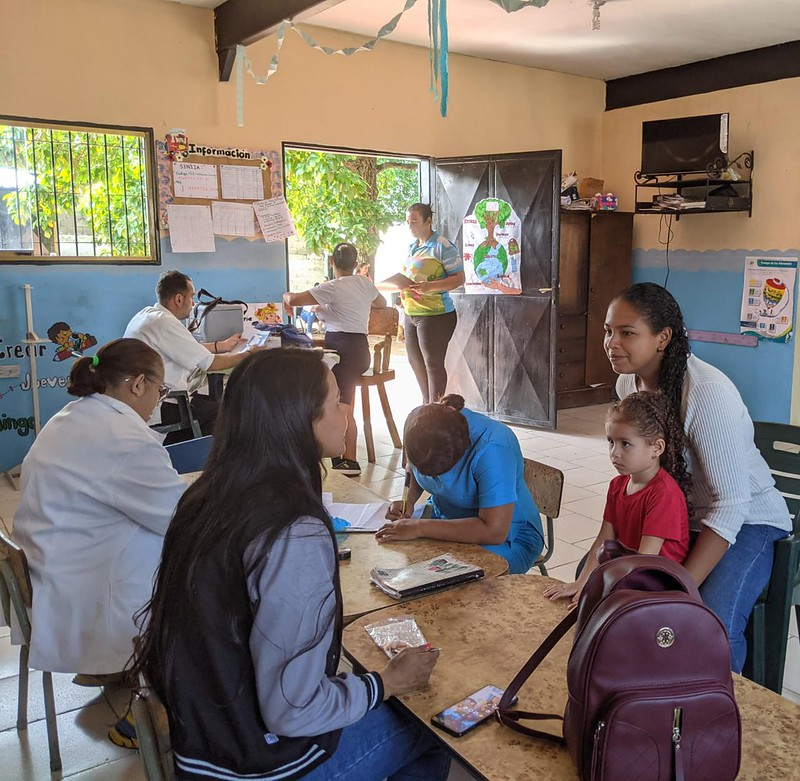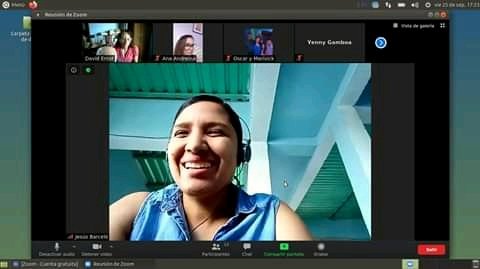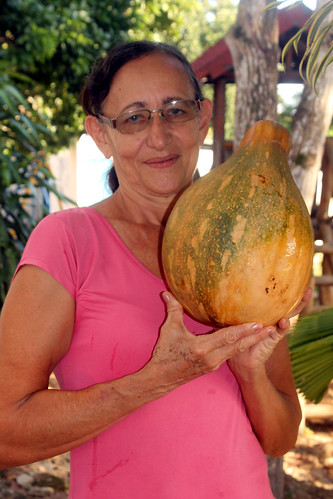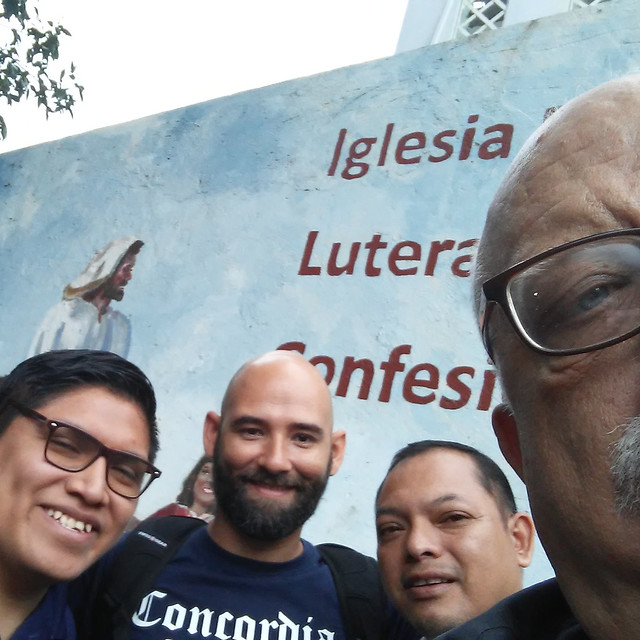Butterflies are not mentioned in the Bible, although
moths
in Scripture represent the frailty of humans and of human
existence (Job 4:19; 13:28; Isaiah 50:9; 51:8) and the temporary
quality of earthly possessions (Matthew 6:19-20; Luke 12:33; James
5:2). Butterflies and moths undergo a similar transformation from
larva to adult by way of a dormant stage (the pupa or chrysalis), but
perhaps the beauty of a butterfly compared to a caterpillar led
Christian artists to see it as a symbol of the resurrection. The
butterfly is sometimes seen in
paintings
of the Virgin and the Christ Child, and is usually in the Child’s
hand. It points to the resurrection of Christ, and in a more general
sense, the resurrection of all men.
Butterflies appear
in the illustrations of the
Arch
Book that I used to tell the Easter story to our preschool
children. For their arts and crafts activity, we used a coloring page
of a butterfly provided by
LeadaChild,
one of our sponsoring organizations. We also had our youth color the
butterfly as part of our Easter Sunday Bible study. The most
pertinent passage of Scripture is 1 Corinthians 15:35-53.
“But someone will
ask, How are the dead raised? With what kind of body do they come?
You foolish person! What you sow does not come to life unless it
dies. And what you sow is not the body that is to be, but a bare
kernel, perhaps of wheat or of some other grain. But God gives it a
body as he has chosen, and to each kind of seed its own body. For not
all flesh is the same, but there is one kind for humans, another for
animals, another for birds, and another for fish. There are heavenly
bodies and earthly bodies, but the glory of the heavenly is of one
kind, and the glory of the earthly is of another.

There is one glory
of the sun, and another glory of the moon, and another glory of the
stars; for star differs from star in glory. So is it with the
resurrection of the dead. What is sown is perishable; what is raised
is imperishable. It is sown in dishonor; it is raised in glory. It is
sown in weakness; it is raised in power. It is sown a natural body;
it is raised a spiritual body. If there is a natural body, there is
also a spiritual body. Thus it is written, The first man Adam became
a living being; the last Adam became a life-giving spirit. But it is
not the spiritual that is first but the natural, and then the
spiritual. The first man was from the earth, a man of dust; the
second man is from heaven. As was the man of dust, so also are those
who are of the dust, and as is the man of heaven, so also are those
who are of heaven. Just as we have borne the image of the man of
dust, we shall also bear the image of the man of heaven. I tell you
this, brothers: flesh and blood cannot inherit the kingdom of God,
nor does the perishable inherit the imperishable. Behold! I tell you
a mystery. We shall not all sleep, but we shall all be changed, in a
moment, in the twinkling of an eye, at the last trumpet. For the
trumpet will sound, and the dead will be raised imperishable, and we
shall be changed. For this perishable body must put on the
imperishable, and this mortal body must put on immortality.”

As the crawling
caterpillar “dies” and emerges alive as a flying butterfly, the
body of the resurrection is not the same weak, aging body that was
laid in the grave, and yet there are not two different bodies.
Rather, the body of the resurrection, is the outgrowth of the new
life that began in baptism and was nourished by the hearing of the
Word and the receiving of Christ’s body and blood in the Lord’s
Supper.
Our relationship
with LeadaChild dates back to 2006, when the Kansas-based mission
agency was known as Children’s Christian Concern Society. Luz Maria
and I were privileged to meet the founders, Edie and Jim Jorns. I had
heard about their pioneering work many years before when I lived in
Kansas.
Celebrating Cinco
de Mayo (not
that one)
Luz Maria celebrated
her birthday, May 5, with another trip to Caracas. With her sister
deaconesses, Elsy Machado and Ginnatriz Mendoza, she helped Pastor
Sergio Maita with one last seminar for deaconesses in training from
May 4 to 6. Sergio is the pastor of “Pan
de Vida” (Bread of Life) Lutheran Church in Santo Domingo, the
Dominican Republic, and an instructor at Concordia
El Reformador Seminary. He also is a native of Venezuela and in
2008 was ordained with me and Eduardo Flores, the current president
of our national church and pastor of “La Santa Trinidad” (Holy
Trinity) Lutheran Church in Caracas. The theme of the seminar was
“Suffering, the Cross and Mercy: Theological Fundamentals of the
Diaconate”. Sergio taught the same short course for deaconess
students in his hometown of Maturin in eastern Venezuela from April
28 to 30.

The 39 Venezuelan
women will graduate from the seminary’s deaconess program next
month along with 24 from Guatemala, 23 from Mexico, 12 from the
Dominican Republic and seven from Panama.
A Prayer for
Pascua (Easter)
Lord God, heavenly
Father, we thank and praise You that You have raised Your son from
the dead and seated Him at Your right hand, from which He will come
to judge the living and the dead. Fill us with the Holy Spirit to
carry our His commission to make disciples of all nations as You have
made us His disciples. In His name we pray, amen.
(Lutheran Book of
Prayer, Concordia Publishing House, 1970.)

 Luz Maria and I are grateful for the opportunity to speak via Zoom on December 4, 2025, to the students of Deshler Lutheran School, Deshler, Nebraska. Our special thanks to principal Todd Voss; Brian Francik, pastor of St. Peter’s Lutheran Church, Deshler; and José Flores, pastor of Trinity Lutheran Church, Friedensau, Nebraska. Deshler Lutheran School is one part of the ministry conducted by St. Peter-Deshler and TrinityFriedensau. Both congregations have a rich tradition of providing Christ-centered education. Trinity Lutheran at Freidensau called the first teacher to the Nebraska District in 1879. St. Peter's Lutheran School was established in 1889. In 1966, Trinity-Friedensau and Bethlehem Lutheran Church of Kiowa joined with St. Peter's-Deshler to form the Deshler Lutheran School Association using the 1953 building and grounds in Deshler for its campus. Trinity-Friedensau celebrated its 150th anniversary last year. I attended the centennial anniversary in 1974 which featured my father’s older brother, the Rev. Alfred Ernst, as guest speaker. My great-grandfather, Henry Schabacker, so far holds the longest tenure as pastor of Trinity-Friedensau, having served for more than 30 years. His daughter, Theodora Amanda, married my grandfather, David Julius Ernst, who was the sole teacher in the parochial school and also church organist.
Luz Maria and I are grateful for the opportunity to speak via Zoom on December 4, 2025, to the students of Deshler Lutheran School, Deshler, Nebraska. Our special thanks to principal Todd Voss; Brian Francik, pastor of St. Peter’s Lutheran Church, Deshler; and José Flores, pastor of Trinity Lutheran Church, Friedensau, Nebraska. Deshler Lutheran School is one part of the ministry conducted by St. Peter-Deshler and TrinityFriedensau. Both congregations have a rich tradition of providing Christ-centered education. Trinity Lutheran at Freidensau called the first teacher to the Nebraska District in 1879. St. Peter's Lutheran School was established in 1889. In 1966, Trinity-Friedensau and Bethlehem Lutheran Church of Kiowa joined with St. Peter's-Deshler to form the Deshler Lutheran School Association using the 1953 building and grounds in Deshler for its campus. Trinity-Friedensau celebrated its 150th anniversary last year. I attended the centennial anniversary in 1974 which featured my father’s older brother, the Rev. Alfred Ernst, as guest speaker. My great-grandfather, Henry Schabacker, so far holds the longest tenure as pastor of Trinity-Friedensau, having served for more than 30 years. His daughter, Theodora Amanda, married my grandfather, David Julius Ernst, who was the sole teacher in the parochial school and also church organist.






























